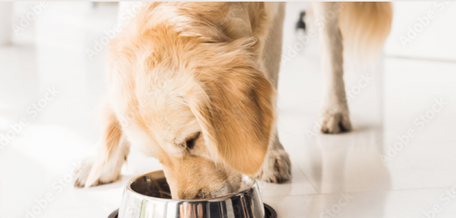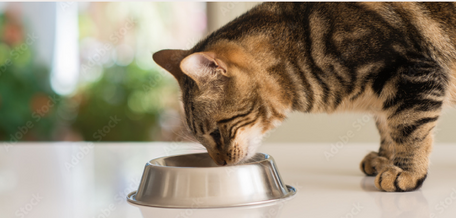What's Really In Your Dog's Food? The Myths about Raw Food
How often do we hear about ultra-processed foods and how they are horrible for us, as humans. Well the same can be said about your pets. As pet owners, we want the best for our dogs and cats, but the pet food industry giants often feel like they care more about making money than my pets health. Let's talk about why kibble may not be the healthiest option for your dog.
In this post, we’ll uncover why kibble is bad for dogs, its impact on canine health, and why we at BJ's Raw Pet Food believe raw food is the best option for your pup.

What Is Kibble, and Why Is It Popular?
Kibble, those dry, crunchy pellets, became popular in the 1950s due to its convenience and long shelf life. Made through a high-heat extrusion process, kibble combines meats, grains, and additives into a shelf-stable product. While it’s affordable and easy to store, the pet food truth is that kibble prioritizes cost over quality, often compromising dog food nutrition.
Why it matters: Dogs are carnivores, evolved to thrive on meat-based diets.
By studying wolves, we can gain insight into how dogs should eat. Wolves eat raw prey. Sometime the preys are fresh kill and sometimes it is a rotting carcass. We should look at canine diets from the perspective of their biology.Kibbles were designed to substitute dogs’ diets. It seems like it's the easiest way to go but isn’t the best option for your dogs’ health.
5 Reasons Why Kibble Is Bad for Dogs
1. Low-Quality Ingredients in Kibble
Many kibble brands use by-products like beaks, hooves, or low-grade meat unfit for humans. Fillers such as corn, wheat, or soy are common to cut costs, but these are hard for dogs to digest and may trigger allergies. Choosing a healthy dog diet means prioritizing named meat sources (e.g., “chicken” over “poultry by-product”).
2. High Processing Destroys Nutrients
The extrusion process uses extreme heat, stripping away vital nutrients like vitamins and amino acids. Manufacturers add synthetic replacements, but these are less bioavailable than natural nutrients found in fresh foods. This makes kibble a poor choice for optimal dog food nutrition.
3. Excessive Carbohydrates
Kibble often contains 30-60% carbohydrates, like corn or rice, which dogs don’t need in large amounts. High-carb diets can lead to obesity, diabetes, or digestive issues. A healthy dog diet should focus on protein and fats, mimicking their ancestral diet.
4. Low Moisture Content
With only ~10% moisture, kibble lacks the hydration dogs get from natural diets (70-80% water). This can strain kidneys and cause chronic dehydration, increasing risks of urinary tract issues. Wet or fresh foods better support canine health.
5. Artificial Additives
Kibble often includes artificial colors, flavors, and preservatives like BHA or BHT, which may cause allergic reactions or long-term health concerns. A natural, healthy dog diet avoids these unnecessary additives.

Health Risks of a Kibble-Only Diet
Feeding kibble exclusively can lead to:
-
Obesity: High carbs contribute to weight gain.
-
Dental Issues: Starchy residue promotes plaque, not cleaner teeth.
-
Allergies: Fillers like wheat or soy can cause skin or ear problems.
-
Digestive Problems: Low-quality ingredients may lead to bloating or IBS.
-
Chronic Diseases: Poor nutrition weakens immunity, shortening lifespan.
Pro Tip: Research dog food brands with transparent ingredient lists to avoid these risks. Check out PetMD for trusted pet health advice.
Healthier Alternatives to Kibble
Switching to a healthier dog diet can improve your pet’s well-being. Consider these options from BJ's Raw Pet Food:
-
Raw Diet: Meat, bones, and organs mimic a dog’s natural diet. Ensure safe handling to avoid contamination.
-
Freeze-Dried/Dehydrated Food: Nutrient-rich and convenient, though more expensive.
Transition Tip: Change diets gradually over 7-10 days to prevent digestive upset. Consult your vet for tailored advice.
The Pet Food Truth: Your Dog Deserves Better
Kibble’s convenience comes at a cost to your dog’s health. Its low-quality ingredients, high carbs, and heavy processing make it a suboptimal choice for dog food nutrition. By exploring raw you can provide a healthy dog diet that supports vitality and longevity.
Take Action: Review your dog’s food label today. Small changes can lead to big health benefits for your furry friend.
Disclaimer: Consult a veterinarian before changing your dog’s diet to ensure it meets their specific needs.
Keywords: why kibble is bad for dogs, pet food truth, dog food nutrition, healthy dog diet




















